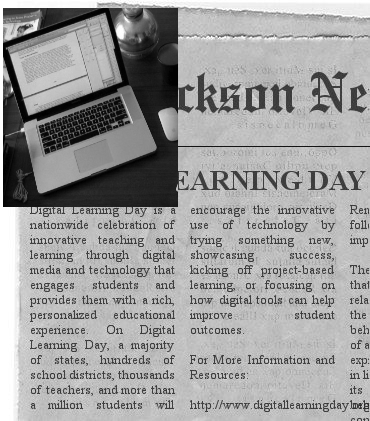Paper vs. Electronic: Using the Brain’s Preference to Work for You
By Vicki Wrona, PMP
As I was flipping through a Scientific American magazine (yes, the paper version), I was intrigued by an article titled Why the Brain Prefers Paper1 exploring the results of studies on how the brain processes information on paper vs. electronically. The question becomes, how do we use this information to work smarter personally and professionally?
Research Findings
First, let’s summarize some of the findings of the research. Paper’s simplicity allows us as readers to flip easily between pages to better compare information cited throughout a document. In general, people understand and retain information better on paper, including those who grew up in the digital age. Also, electronic screens strain the eyes and create more headaches due to the backlight and flicker rate, and require more effort to constantly scroll and adjust the screen. Information retention also varies between the mediums.
Practical Application
This got me thinking – now that I know this, what do I do about it? Here are seven practical applications.
- When working with large reports requiring active review or to ensure compliance, print them out. For example, an executive I know always prints out his multi-hundred page Sarbanes-Oxley report to analyze it. This allows him to easily flip between pages and sections for proper analysis and understanding.
- When reviewing reports requiring a decision or action, print them out. Examples here would be proposals or strategic decisions. Having proposals printed out allows the reader to draw correlations, to flip between sections to understand all areas of the proposal, and to compare multiple submissions, such as multiple vendor proposals or multiple options for a given problem.
- When learning a new skill or job, print out a job aid, summary or checklist of key points for easy reference after the initial study. Learning a new process by going through the various detailed steps online is fine, as long as summary reference materials are available afterward. Printouts are preferred here due to the unique picture of the page and the ability to take notes, as explained in #4, next.
- If studying for a certification or a test, there are several things to do:
- Printing out some or all of the study materials allows highlighting and notes to be more easily recalled. When notes are handwritten on a page, you add your unique handwriting or may write in the margins or in different directions, drawing arrows between different items. When you do this, your brain can take a unique picture of that page to aid in recall. All pages and notes found on a screen tend to be more uniform, negating the ability to create a unique picture for more easy recall in your mind. If you are not provided a printout of study materials, organize and store your printouts in a 3-ring binder, allowing for easy flipping and the ability to remove pages as needed.
- Take practice tests online. Because on-screen reading is more taxing, the physical toll of a longer exam such as the 4-hour Project Management Professional (PMP®) exam is greater on screen than on paper. Also, the ability to process the question and answer options could be more difficult on screen. For multiple reasons, taking practice tests online is good practice.
- When reading complex novels or non-fiction intended to improve or to learn, paper may be the better option.
- When interactivity enhances the learning or reading experience rather than distracting from the story or points being made, electronic print has an advantage. On screen, you can watch a video or click an item to research a term or quote easily. If these enhancements will do more to distract and detract from the main point, paper’s simplicity allows for better focus.
- Continue to process emails and certain documents, such as short or consistent or mundane reports, online.
In summary, I see practical applications pertaining to a variety of areas including strategic, compliance, proposals or studying.
This article offered seven practical applications that immediately came to my mind. In what other areas have you found a paper printout to be more helpful than an electronic version?
[1]Scientific American, Nov 2013, Why The Brain Prefers Paper by Ferris Jabr, pp. 49-53 in print and http://www.scientificamerican.com/article.cfm?id=the-reading-brain-in-the-digital-age-why-paper-still-beats-screens online.






Hi Vicki,
Thanks for the article on screen vs paper. The results are what I’d expect. Although I avoid printing as much as possible to avoid paper clutter, there are times when I really need to know the material and since you can’t take/use a highlighter on the PC screen, I appreciate the old fashion hard copy (e.g. your PMP study guide).
Happy New Year!
Thanks Mike. Like you, I don’t like to print often (who has the space), but sometimes it is necessary. And now I know how and where it’s helpful, too.
Hi Vicki,
I read the same article and appreciate your synopsis of it. Both make me think more now before reading and/or printing an article out.
I couldn’t make the link you provided work to reread the article however.
Jerry
Thanks Jerry. I just tested the link and it works for me. Maybe you have to register with Scientific American first? (It’s free.)
I would say that a PMP Certification is highly respected within both IT & non-IT communities where strong project management skills are required. If you plan on a long term career as a project manager, then yes, even with your level of experience, I would suggest getting your PMP.
It will definitely ease your work of handling a big project. As a project manager I use scrum in my projects. One of my friends referred me to use the Guide to Scrum Body of Knowledge by scrumstudy.com. I like the concepts of sprints, daily standup meetings, etc.